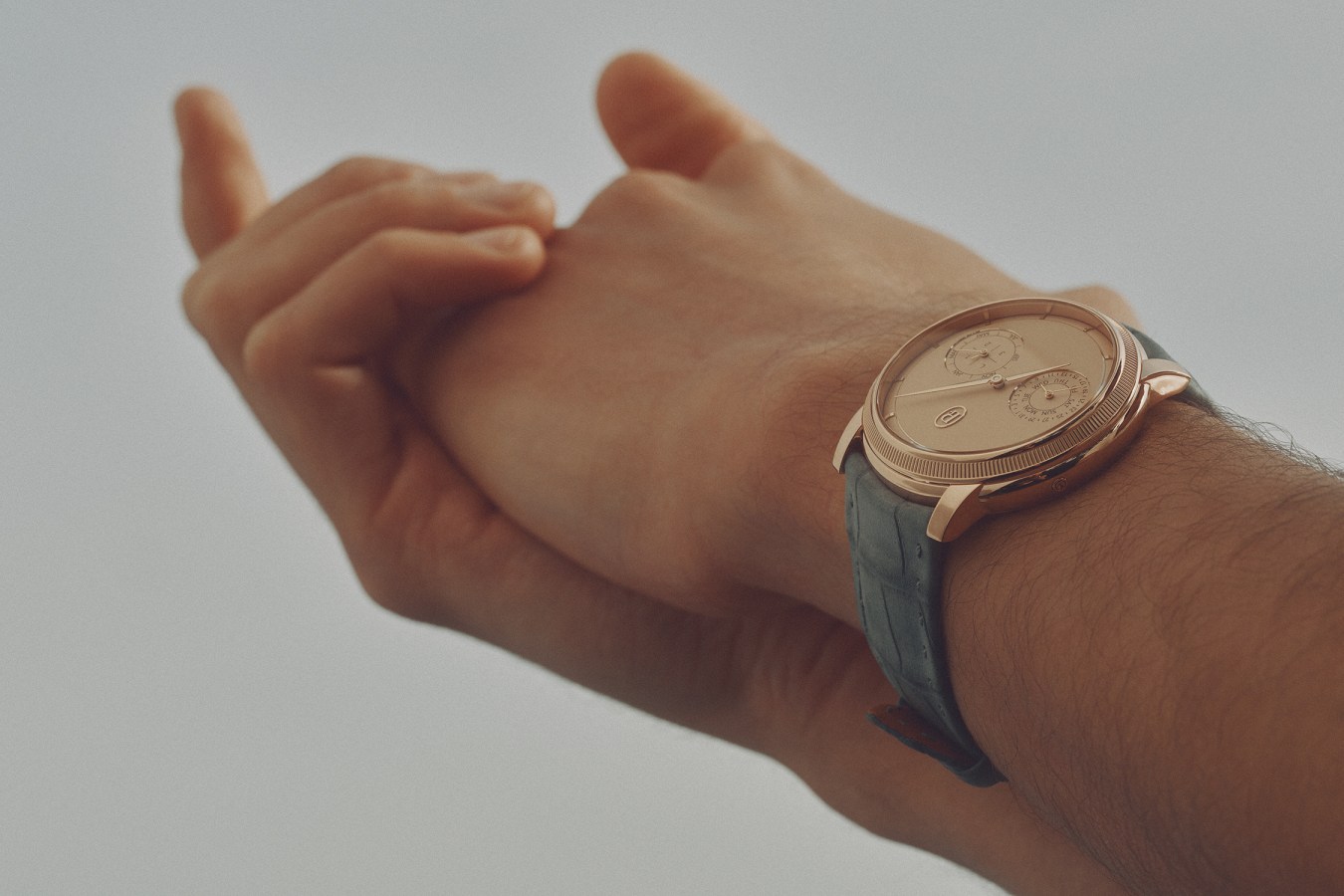Porcine’s Nik Hill recently won the Bocuse d’Or Golden Knife, Australia, an accolade which requires competitors to cook on the spot, with one shot to get it right – no matter their reputation – and to join an exclusive club of the world’s best. With that win still fresh, the highly irreverent and cheeky Hill spoke to Stewart Hawkins about his emergence from the grease of the local takeaway to the world of fine dining.
This story is featured in Issue 18 of Forbes Australia. Tap here to secure your copy.
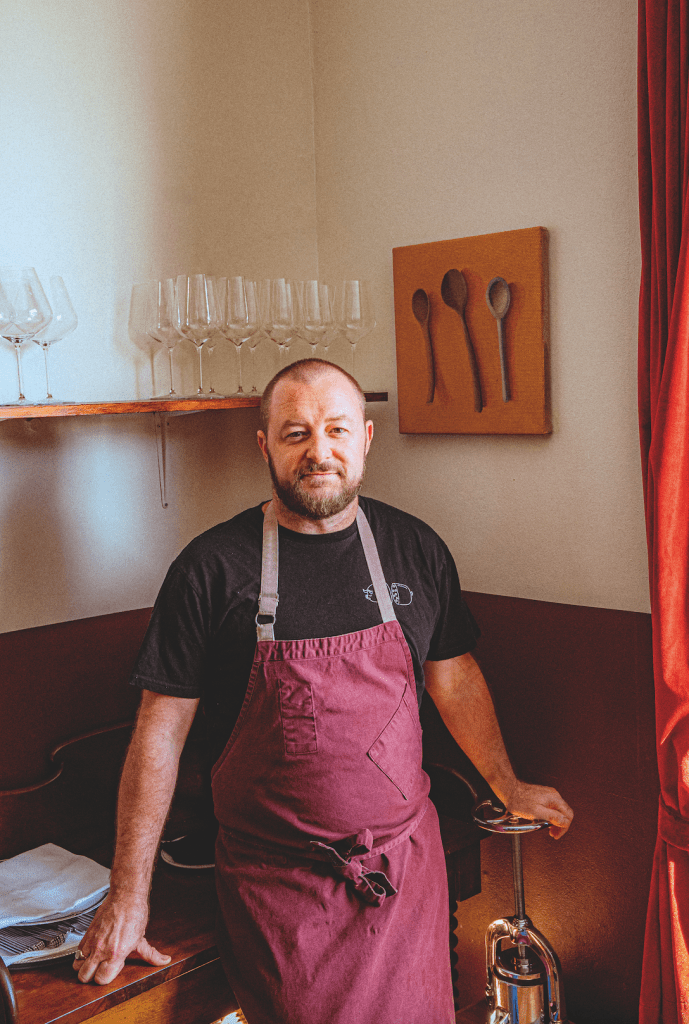
At 12 years old, Nik Hill was killing it.
Folding the cardboard fish and chip boxes with grease-absorbing paper for six bucks an hour at the local chippie and then stuffing 300 chickens a day at the cooked-chook takeaway up the road on a Saturday morning for six-fifty, he was living the dream and jokes it was still the “best money he’s ever made”.
The apprentice who worked at the hairdresser’s next door, whom he seriously fancied and allowed to “frost tip” his hair – “in fact do whatever she wanted to it” – provided more incentive to stay working in that world of dubious culinary quality.
Hill is now about as far from fast food as you can get and still in the business of preparing ingredients for human consumption.
He’s the co-owner and head chef of highly respected French bistro, Porcine in Sydney’s Paddington. He’s worked at Balmoral’s legendary Bather’s Pavilion, the CBD’s Quay and, notably, two stints at the now three-Michelin-starred Ledbury in London under fellow Australian chef Brett Graham.
Graham’s is actually the first name Hill mentions when asked about his mentors, and he describes his time in his kitchen as not only being seminal in terms of culinary creativity but also where he learned about producing quality under pressure.
“You had nine, 10 chefs on the roster doing 85 hours a week,” he recalls.
“Really, really high standard at that stage. It had its second Michelin star and was in the top 10 restaurants in the world, and won UK awards year after year. The pressure was huge and the kitchen was pretty fierce.
When I was there, [Graham] would be first in last out, but just mania, constantly, constantly, constantly there, but very inspiring and taught a lot of the time.
“He encouraged you to be like, ’if you want to do this, you can do this. This is for you.’ And it was an encouraging way of teaching.”
It was when Hill came back from London the second time that he decided it was time to “open his own shop”. A job he’d taken doing corporate catering just wasn’t working.
“Shocking. It was cooking for corporates, and there were only 12 covers there for lunch. I wasn’t really running the show, I just kind of turned up and took the money. Then after six months, my wife was, ‘Get out of the house, mate. Get a real job, Nik, it’s killing you.’ She has said our relationship works because we don’t see each other. Let’s keep it that way, mate.
“We’re good now,” he laughs.
He called Graham for advice. What to do? He put him on to Martin Benn, Chef at Sepia in Sydney’s downtown, which pretty much had every industry gong you could get at the time.
“When I went to see Martin, he said, ‘Brett asked me if you could hang out, but I presume that means you want a job.’ At the time, I thought maybe I should get a job,” he says.
“It was around that time [my wife] said, ‘Get out of the house,’ and I didn’t have any coin, I didn’t know anyone, so how am I supposed to open a restaurant?”
Hill took a job with Benn and stayed there for nearly three years, describing it as a fundamentally different experience to his time in London.
“The Ledbury was balls to the wall, menu changing every day – rigorous, relentless pressure. It was just constantly and constantly evolving.
“Whereas Sepia had been there for a long time as well, but totally different. [His cuisine] was so very precise and so measured and so much calmer. The Ledbury was like 10 Australians trying to call a horse race at once. It was madness. It was great – I loved it and it was a huge learning curve.
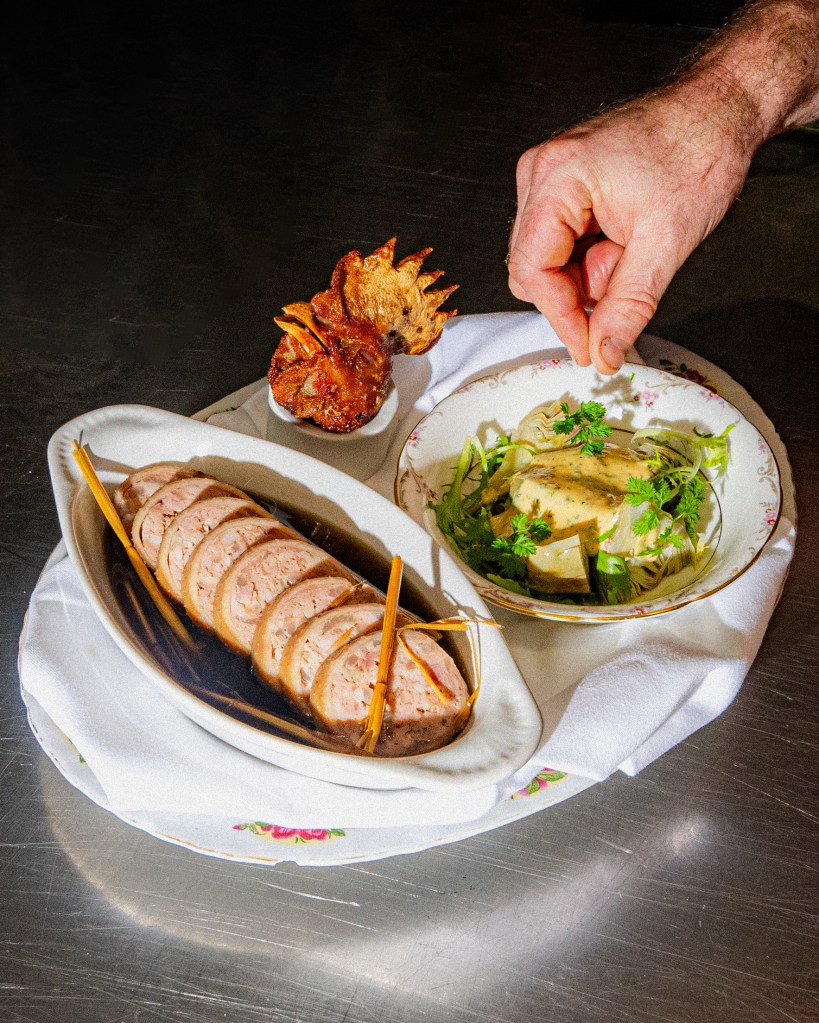
“Benn is a big guy…and he had a wicked reputation when he was working at Tetsuya’s. I only saw him lose it once or twice. Scary thing to see. I remember my first day, and I had this blender jug, and instead of doing two batches, I jammed it all in, and the machine’s going whzzzzzzzzzz, and the whole kitchen is like, ‘What the fuck’s wrong with this guy.’
“Benn just came and put his hand on my shoulder and said: ‘Don’t break my things.’
“That was kind of the catalyst.”
Hill was a sous chef and ran the starters, the first two or three courses of the taster menu, plus all the pastry. At the time, Benn was being highly creative according to Hill – every week something new, something to work on, which Hill describes as ‘just another great eye-opener of running a business’.
“Small business, 60 covers, but it was world renowned,” he says.
Sitting with Hill in the outdoor courtyard of the downstairs bar at Porcine on a blustery Sydney winter day, he relates tale after tale (some perhaps shouldn’t appear in print) each one expletive-laced and crazier than the last, of life in the kitchens and on the restaurant floors – it appears to have been a tough life but one fully lived.
His recent triumph in the Bocuse d’Or competition, where he won the “Golden Knife”, has strengthened his position in Australia’s culinary world.
Unlike other accolades, the Bocuse d’Or is a real-time test of a chef’s trade, and one which comes with all the pressure of a Saturday night in a booked-out restaurant.
“I guess that’s where the Bocuse d’Or, especially outside of Australia, has so much respect – because you [have to] get it right on the day under extreme scrutiny, pure perfection, or you don’t, you either nail it, or you miss it. That’s it,” Hill says.
“That’s also what throws a lot of chefs off doing it – and it’s not for everybody. That’s understandable because the pressure of doing it on that day is tough. You can look pretty silly pretty quick, which, gladly, I didn’t.
“With [reviews such as the] Good Food Guide, it’s also the entity, the business, the restaurant, the front of house staff, the wine list, all that sort of stuff.
“[The Bocuse d’Or] solidifies that we’re doing something good because a lot of what is cooked [at Porcine] and what the Bocuse d’Or represents, that’s the sort of food we cook here.”
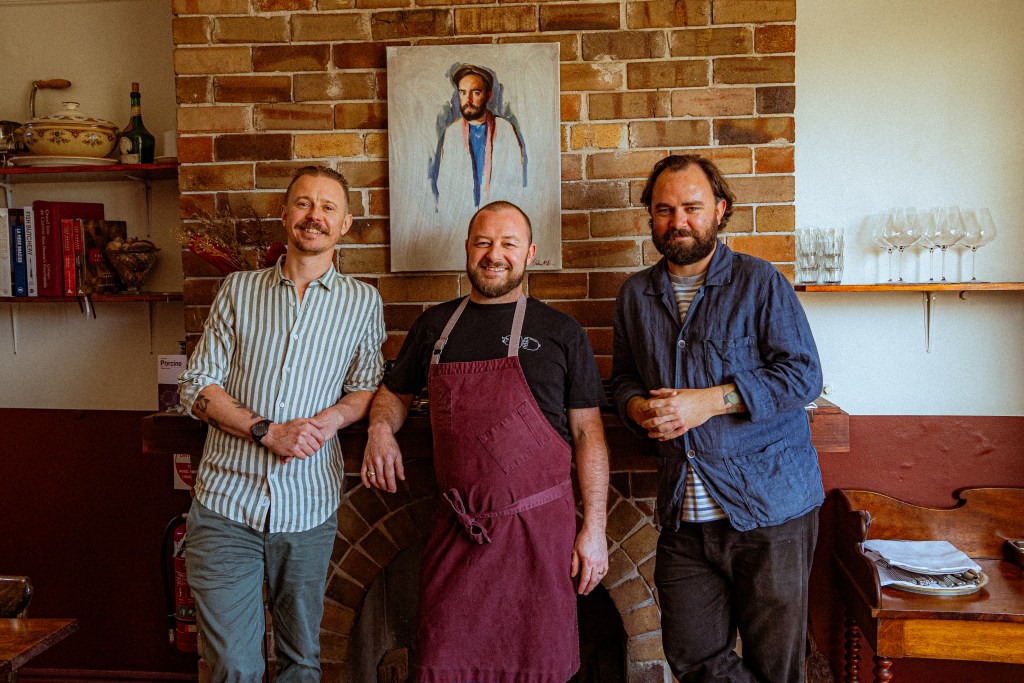
Your last ten meals?
I asked Hill if he knew he didn’t have that long to live, where would he have his last ten meals and why (in no particular order)
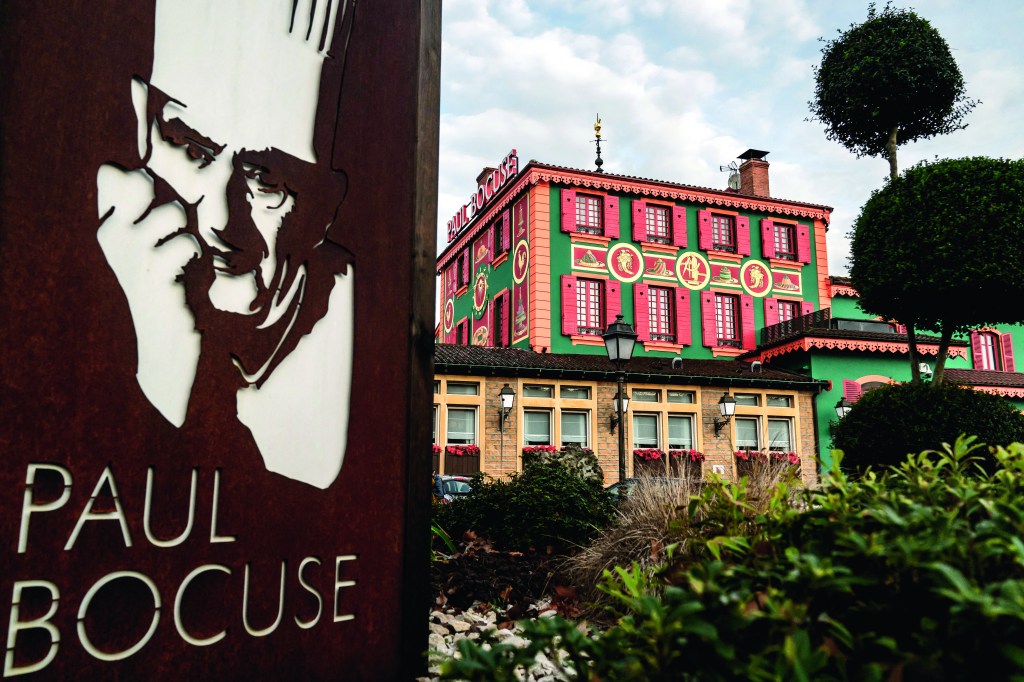
PAUL BOCUSE, LYON
40 Rue de la plage, 69660, Collonges-au-Mont-d’Or.
“The pinnacle of French gastronomy. It’s old, at least in a lot of ways, but also the history of the place is stunning.”
CAFÉ DES FÉDÉRATIONS, LYON
10 Rue Major Martin 8-9, 69001, Lyon.
“They make a mousse out of pike eels… choux pastry and then poach it and they cover it in lobster sauce and then bake it in the oven and it’s fucking like a pillow of richness.”
CHEZ FONFON, MARSEILLE
140 Rue du Vallon des Auffes, 13007, Marseille.
“That’s where you have the Bouillabaisse. They’ve been doing it for like 65 years. It’s absolute class. You’ve got to ask to sit upstairs otherwise they’ll put you in the tourist room downstairs.”
ST. JOHN, LONDON
26 St. John Street, London.
“It is quintessential British cooking. Very brown food. Absolutely delicious.”
LEDBURY, LONDON
27 Ledbury Road, Notting Hill, London.
(See main story)
SAMRUB SAMRUB, BANGKOK
39/11 Yommarat Alley, Si Lom, Bang Rak, Bangkok.
“He (the chef) is the fucking wildest guy. Food’s incredible.”
SUSHI MASATO, BANGKOK
Soi Sukhumvit 31 (Soi Sawasdee 1), Khlongtoei Nua, Wattana, Bangkok.
“Sushi anywhere in Asia is better than sushi in Australia – lunch menu’s better, bit cheaper – but just go hard.”
JOE BEEF, MONTREAL
2491 Notre-Dame St W, Montreal, Quebec.
“It’s just a beautiful French bistro. All French wine, very knowledgeable waiters, very chill, and just unequivocally delicious. No bullshit.”
AU PIED DE COCHON, MONTREAL
536 Duluth Est, Montreal, Quebec.
“That dude cooks a lot of pork and a lot of Foie Gras and it’s absolutely take-no-prisoners. This place is fucking gnarly.”
TUBA CLUB, MARSEILLE
2 boulevard Alexandre Delabre – Village des Goudes, 13008, Marseille.
“The seafood is crazy!” And where Hill admits he may have made a less-than-optimal life decision after a number of beverages and plunged into the rocky surf next to the dining terrace. Yes, there was blood on the dessert.
Look back on the week that was with hand-picked articles from Australia and around the world. Sign up to the Forbes Australia newsletter here or become a member here.


